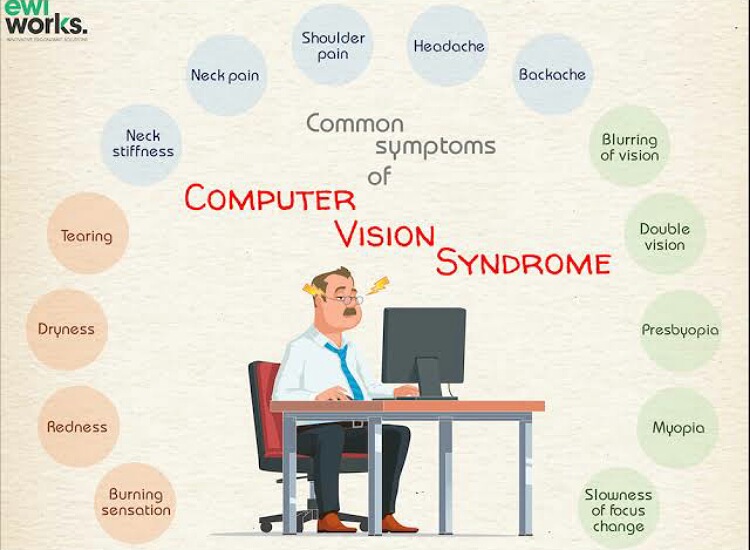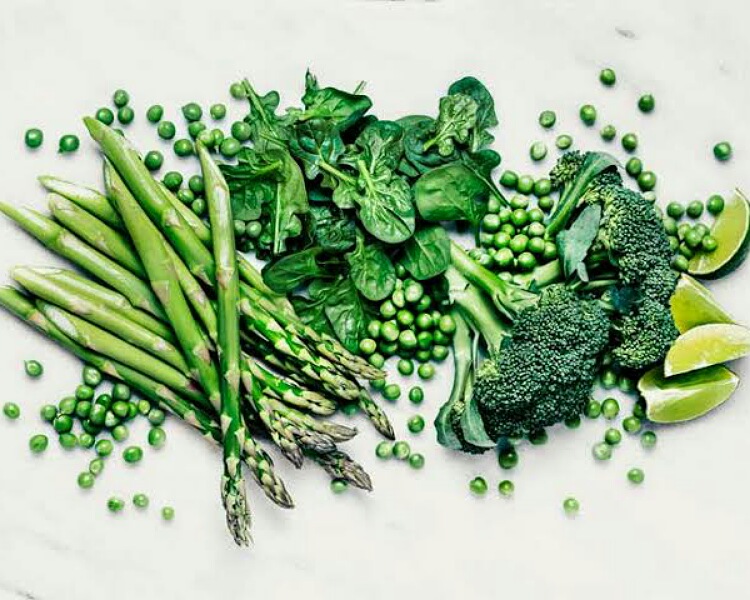People use laptops, smartphone, tablets and television to gather information, for entertainment, and to connect. Hence, the screen time has increased considerably. People are aware of the eye and other problems of increased screen time. But despite that, they are unable to reduce it. This is because it has become so much a part of everyone’s life that one cannot remove it. However, one can make small changes in diet to overcome this computer vision syndrome
What is computer vision syndrome?
Smartphone, computers, laptops, tablets, television and such digital gadgets have become an indispensable part of the life of people in the world. People use it to connect, gain information, and also for entertainment. An international survey of 30 countries found that on an average a person spends around 5 to 9 hours of a day in front of these screens.

The increased screen time comes with health issues of sedentary lifestyle and also eye effects. Around 25 to 40% of office workers using screens get certain common symptoms of eye. These include dry eyes, tired eyes, headache, blurring of vision, eye strain, neck strain, and photosensitivity to bright lights. This is computer vision syndrome. It can be debilitating and general doctors often make unnecessary neurological references for it. This increases health budget costs.
Diet and eyes
There are certain nutritional strategies to counteract these ill effects of screens on eyes and vision. There are certain carotenoids found in the green, yellow, and orange vegetables that help reduce the computer vision syndrome. These are lutein and zeaxanthin, which act selectively at the central macular region of the eye. Their yellow color is useful as a blue-light filter. Hence they protect the delicate photo-sensors from the damaging effects of blue light. These are actually powerful antioxidants and are beneficial for the eyes.

Anthocyanins have a similar effect on the eyes and protect if from the damages of digital screens. In two studies bilberry extracts, which contain both anthocyanins and a range of carotenoids including lutein and zeaxanthin were studied. The studies showed a decrease in eye complaints due to extended screen times. In the lab, the anthocyanins present in the blueberries could protect the layer of cells that supports the vision cells. Some clinical trials have shown that the antioxidant could improve the eyes’ ability to recover after a flash of bright light.
Another study
Another randomized and place-controlled study studied the effect of supplementation with lutein and zeaxanthin on improvement of computer vision syndrome symptoms. 48 college students using screens for at least six hours per day at a distance of 3 feet or less, were either given a lutein and zeaxanthin supplement (24 mg lutein, with zeaxanthin and mesa-zeaxanthin at a ratio of 83:10:7, that were suspended in oil) or a placebo for six months. Visual tests and questionnaire were done at baseline, three months and six months. Questions were asked on sleep quality and presence of blurry vision, neck strain, eye strain, eye fatigue and headache.

Read more: Eye health: Foods and pigments that help protect the eyes in summer!
At the end of six months of supplementation, there was seen an increase in lutein and zeaxanthin in the eye. Complaints of headache, eye fatigue and strain strain lessened and all the measures of visual performance showed improvement. Sleep also got better. The researchers conclude that the two pigments helped to eliminate some blue light and its eye damage.
